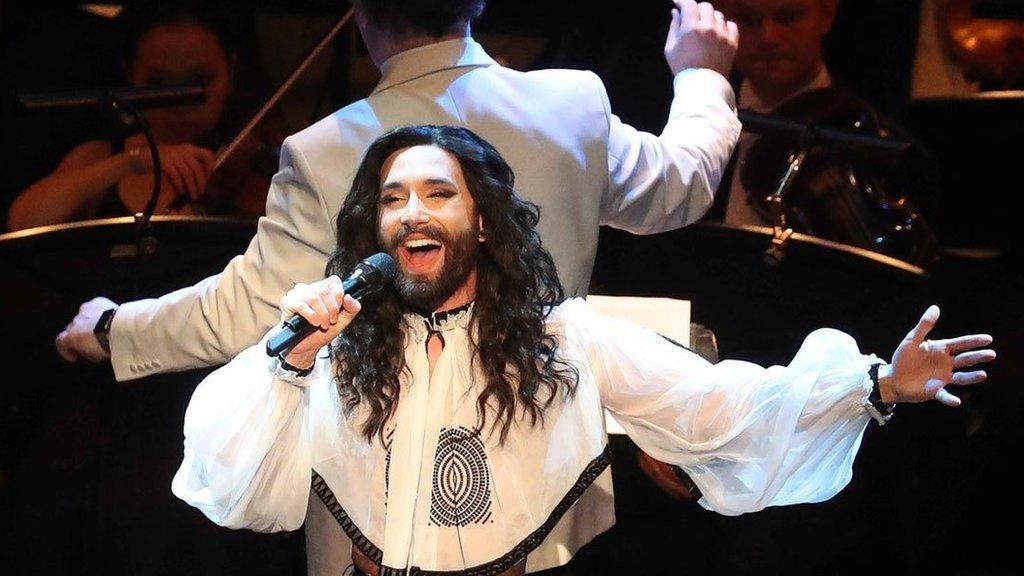Eurovision 2018: Ireland among 10 countries through to final
- Published
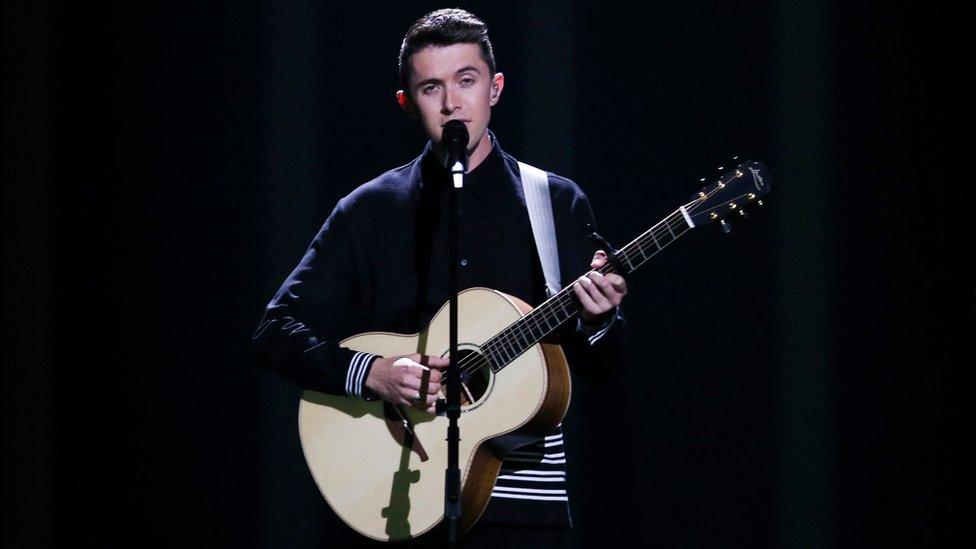
Ireland's Ryan O'Shaughnessy reached the Britain's Got Talent final in 2012
Ireland will take part in the Eurovision Song Contest final for the first time since 2013 after making it through the first semi-final in Lisbon.
Israel, Cyprus and Finland - featuring former X Factor semi-finalist Saara Aalto - were among the other nine countries who progressed.
But Greece and Belgium, who had been tipped to qualify for Saturday's main event, failed to make it through.
A further 18 countries will take part in the second semi-final on Thursday.
Allow X content?
This article contains content provided by X. We ask for your permission before anything is loaded, as they may be using cookies and other technologies. You may want to read X’s cookie policy, external and privacy policy, external before accepting. To view this content choose ‘accept and continue’.
The UK, represented by SuRie, is automatically in Saturday's final as one of the "Big Five" countries. The other four are Germany, Italy, Spain and France, while hosts Portugal also automatically qualified for the final.
The acts making it through the first semi-final were:
Albania
Austria
Bulgaria
Cyprus
Czech Republic
Estonia
Finland
Ireland
Israel
Lithuania
Allow X content?
This article contains content provided by X. We ask for your permission before anything is loaded, as they may be using cookies and other technologies. You may want to read X’s cookie policy, external and privacy policy, external before accepting. To view this content choose ‘accept and continue’.
Israel's Netta is among the favourites for the main prize after competing in the first semi-final with her track Toy, which has a powerful message of female empowerment - and a quirky chicken dance.
Cyprus, another country widely-tipped to win the grand final, was represented by pop star Eleni Foureira, who brought the tropical and catchy beats of her track Fuego.
Born in Albania, Eleni first established herself as one third of Greek group Mystique in 2007.
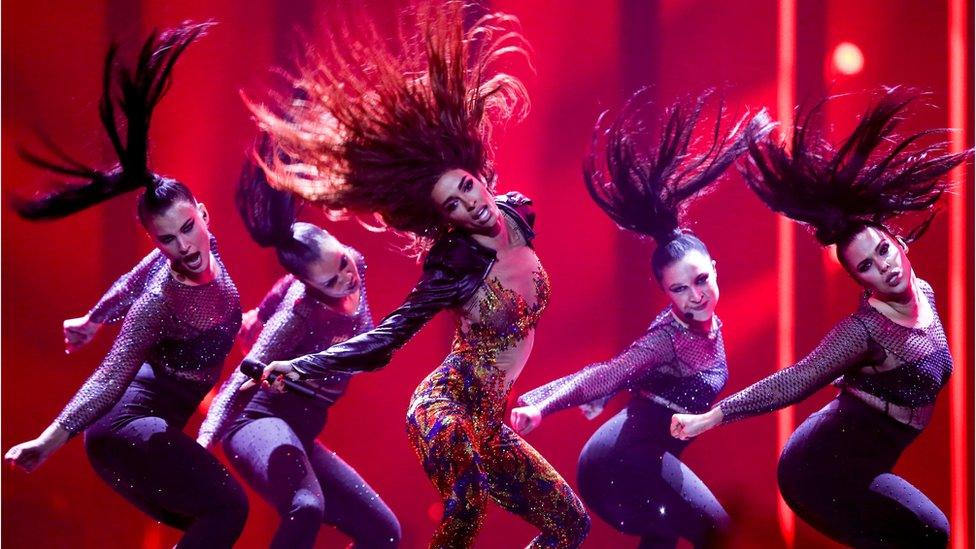
Cyprus' Eleni Foureira is among the favourites to win the contest
The Czech Republic's Mikolas Josef has been touted as the nation's answer to Justin Bieber. The 22-year-old's rendition of Lie To Me - a bouncy, swaggering tale of young love - has clear mainstream appeal.
He had to go to hospital after sustaining a neck injury during rehearsals.
Other notable acts included Finland's Saara Aalto, who won over UK audiences during her time on The X Factor in 2016, despite losing out in that contest to Matt Terry.
Allow X content?
This article contains content provided by X. We ask for your permission before anything is loaded, as they may be using cookies and other technologies. You may want to read X’s cookie policy, external and privacy policy, external before accepting. To view this content choose ‘accept and continue’.
Ryan O'Shaughnessy represented Ireland, which has more Eurovision wins - seven - than any other country, but has not won the competition since 1996.
His song Together is about the end of a love affair and features two males dancers as the splitting couple.
Some viewers may remember him for reaching the Britain's Got Talent final in 2012.
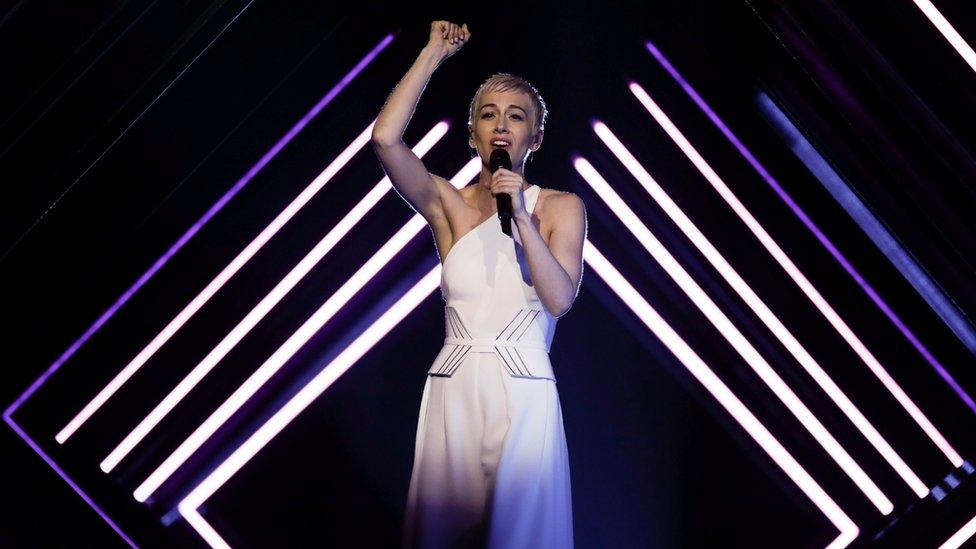
SuRie said it was a dream to represent the UK at Eurovision
The fates of the semi-finalists were decided by a combination of votes from national juries and viewers.
The nine unsuccessful countries included Azerbaijan, which had previously never failed to qualify from a Eurovision Song Contest semi-final since first entering a decade ago.
The other stories to fall at the semi-final stage were Armenia, Belarus, Croatia, FYR Macedonia, Iceland and Switzerland.
The UK's hopes in the grand final at Lisbon's Altice Arena on Saturday night will rest on London-born singer SuRie, who will perform her ballad Storm.
Speaking at the first semi-final, the singer, whose real name is Susanna Marie Cork, said she was excited for Saturday, adding: "It's such a dream."
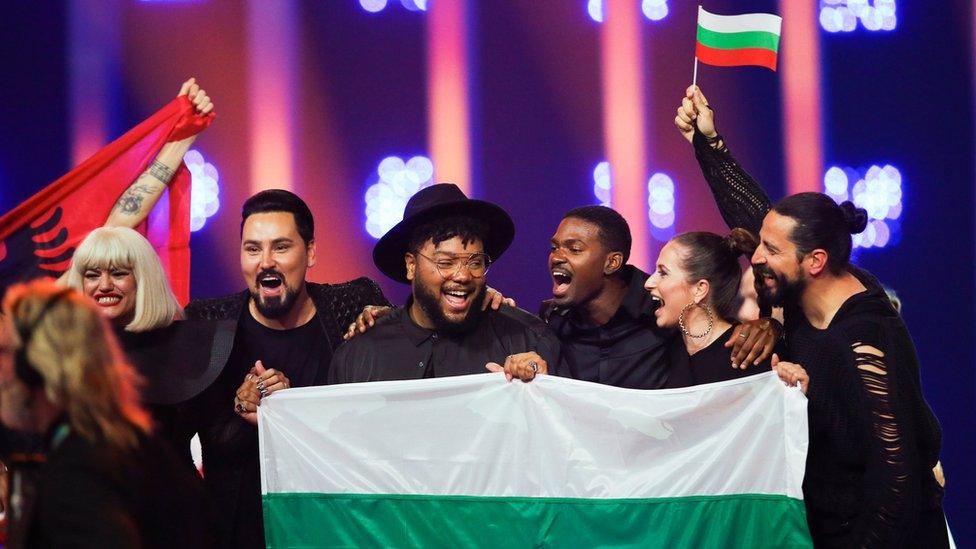
Bulgaria also made it through to the final

Follow us on Facebook, external, on Twitter @BBCNewsEnts, external, or on Instagram at bbcnewsents, external. If you have a story suggestion email entertainment.news@bbc.co.uk, external.
- Published8 May 2018
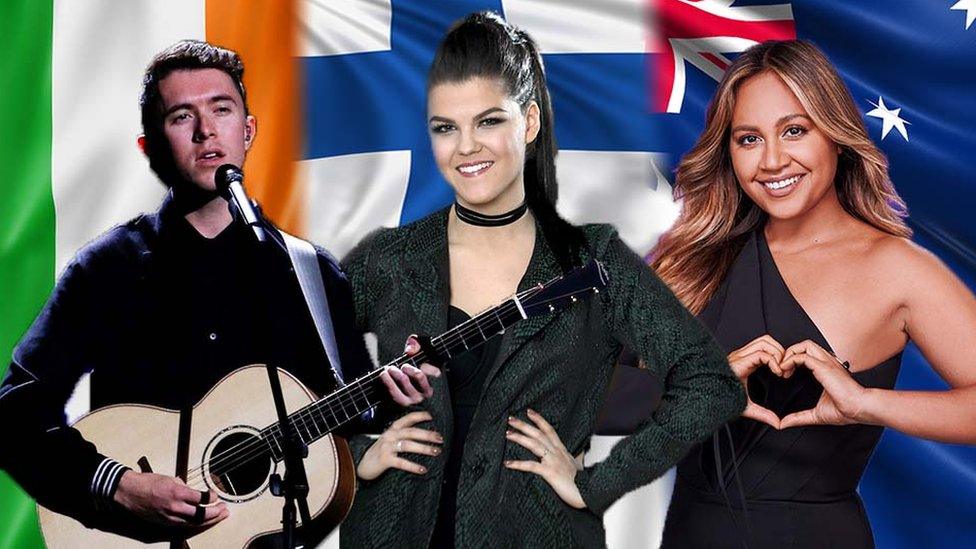
- Published9 May 2018
